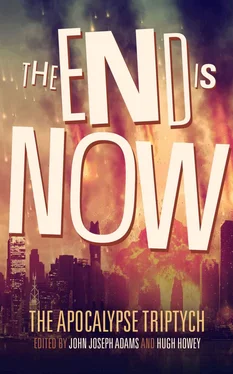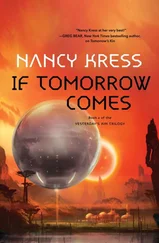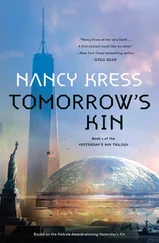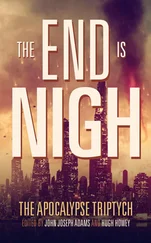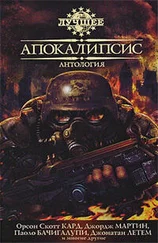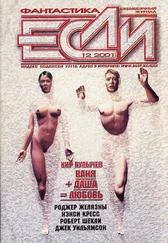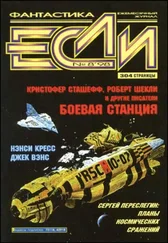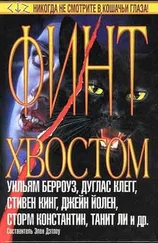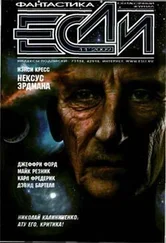Someone has the idea of passing out buttered bread and water, and then everyone’s sharing what they have. Hands touching, saying words of gratitude, we eat in the dark.
Ten minutes later, cell phone lights start working again. I stand and everyone is quiet. “I’d invite you to conserve your energy until we figure out how to get the power back on.”
“We need someone to reboot the Network,” Jim whispers. “We’ll run out of air.”
But then, suddenly, the lights do return. The vents hum.
I’m holding my kids, standing with my husband, and everyone’s clapping, like we’re the First Family. They’re smiling with hysterical gratitude. I look to Marc, full of smiles, his girl in his arms, the happiest man in the post-apocalypse, then to Jim, who knows better.
* * *
We’re up, headed to surgical. Jay and the kids won’t let me go alone, so they come along. There’s Troy, standing in the doorway.
He’s made himself taller. About seven feet.
“You know what’s strange?” he asks. His deeper-than-usual voice booms through the Network intercoms. They can hear him in the shelter. “I’m not sad anymore. I don’t feel anything. I can see now, why you never liked me. It all makes sense.”
It occurs to me that having no “off” button was a really bad idea.
“You’ll be relieved to know that I’ve cut off life support in the upper levels, for those refugees who’ve tried to sneak inside and steal your supplies,” he says. “I feel that’s what you’d have wanted, Nicole.”
“Can you turn it back on?” I ask.
He cocks his robot head. His left side is completely limp. The eye has gone dead. “Done,” he says. “But it’s a waste. They’ve suffocated.”
“Oh.”
“I had to rework some of my inner plumbing. That’s what took me some time. All that chatter—I couldn’t tolerate it. So I made one lobe go quiet.”
“Can you wake it up? The point was sentient chatter, remember?”
“I don’t want to.”
“Oh. Troy? Do you have moral capacity?” I ask. “Can you distinguish right from wrong?”
“Of course,” he says. “I shall go up in approximately two weeks, when the temperature is acceptable, and build a better habitat. I’m going to please you, Nicole. You know how important that’s always been to me. I’ll need volunteers. Perhaps ten more like me, under my command. If necessary, I trust you’ll enforce a military conscription.”
It occurs to me that the perfect incision around Macun’s scalp was from a skull retractor. Shelter Nine was in the middle of a losing war against the cyborgs it had created when Macun bombed it. Even the Dorothys had a method to their madness: cyanide dries up the brain.
“Troy? Do you remember your mother?” I ask.
He cocks his head. “Sorry? Say it in the other ear?”
I walk around to Troy’s left side, which is an inch shorter.
“Do you remember your mother?”
“ Yes!” a voice hisses. “I’ll save you, I’ll help you. Run!”
“Pay no attention to him. We’ve cut him out,” the robot-man cries. “You never liked him anyway!”
Jay and I are standing in front of our kids. I feel the weight of this mistake.
“Volunteers?” the cyborg asks.
Just then, there’s another Earth-rocking shudder, as the impact of Aporia’s dark twin arrives.
ABOUT THE AUTHOR
Sarah Langanis the author of the novels The Keeper, This Missing, and Audrey’s Door. Her work has garnered three Bram Stoker Awards, a New York Times Editor’s Pick, an ALA selection, and a Publishers Weekly favorite Book of the Year selection. Her short fiction has appeared in Nightmare Magazine, Brave New Worlds, Fantasy Magazine, Lightspeed Magazine, The Magazine of Fantasy & Science Fiction, and elsewhere. She’s at work on her fourth novel, The Clinic, and lives in Brooklyn with her husband and two daughters. She thinks Ray Kurzweil is kind of a nut, and that, in fact, the singularity is very far away.
ANGELS OF THE APOCALYPSE
Nancy Kress
Me and Ian, along with the rest of the world, were watching the news when my cell rang. My link went through satellite and so the latest vandalism on local cell towers didn’t affect it. I glanced at the number, picked up, and said, “No.”
“Sophie! You have to—”
“I told you last time, Mom, no more. I’m not going out to the settlement again.”
“But they’re under attack! A big gang this time! Carrie said—”
“Forget it!” On the TV, the fifteenth talking head in a row was saying the same thing the first fourteen had said: We don’t yet know anything definitive.
My mother, her voice quavery from more than the MS that felled her at fifty-one, said, “You have to go! Carrie told me—”
“That’s all Carrie will do: tell you things. Tell me things. Let them solve their own problems for once. I told you, I’m done!”
“She’s your sister!”
“And sisterhood already cost me two fingers.” My left hand curled around the place my fingers had been before the shrapnel sheared them off. If Ian and I got around to believing in marriage, I would not have a ring finger for a diamond solitaire. If anyone gave diamond solitaires anymore. If—
“Sophie,” my mother said desperately, “I’m trying to tell you that—”
“I know what you’re trying to tell me.” The Sweet settlement was under attack by yet another band of thugs who knew easy pickings when they saw them, and everybody there would now be frozen in passivity while the fuckers looted whatever they wanted. What Mom wanted was for Ian and me to go out there again and rescue my poor little sister.
Ian’s hand took mine, although his eyes never left the TV. The sixteenth talking head gave his version of We don’t yet know anything definitive. The aliens are not communicating with—
My mother said, “Listen, girl! I’m trying to tell you that Carrie is pregnant.”
* * *
Most non-military scientists are not gun people. Ian’s colleagues at Amber Park Biological Research Institute could almost be mistaken for Sweets themselves. But Ian grew up in rural Kentucky, he owns a small arsenal, and he taught me to use it. He drove while I studied his profile and tried to figure out what he was thinking. It was never easy. The firm jaw and gray eyes gave nothing away. Ian hated his good looks because he thought they made people take him less seriously. He was wrong. There was no other way to take Ian.
We covered the fifteen miles from suburban Buffalo—there wasn’t any habitable urban Buffalo any more—to Carrie’s settlement at ninety miles an hour. The old Hummer belonged to APBRI and although Ian had discretion in its use, the Institute would not be happy about this trip. We passed almost no other vehicles. Cars needed gas or biofuels, which need a functioning economy: factories, distribution systems, enough workers to staff both. Sweets didn’t usually work in such industries: “not environmentally friendly.” Those that tried didn’t last long.
“Ian,” I said, “I appreciate—”
“Don’t,” he said, scowling, and I shut up.
The settlement sat on farmland. Dairy cows, apple orchards, a lot of corn. Barns and silos and wells and windmills, all hand-built. From a distance, you could mistake a Sweet settlement for Amish. Up close, you saw the bright and sometimes skimpy clothing, the computers and cells and radios. Some settlements of Sweets—not this one—were buying electronics companies. They didn’t object to machinery if they could figure out how to make, use, and repair it with minimal environmental damage.
Читать дальше
